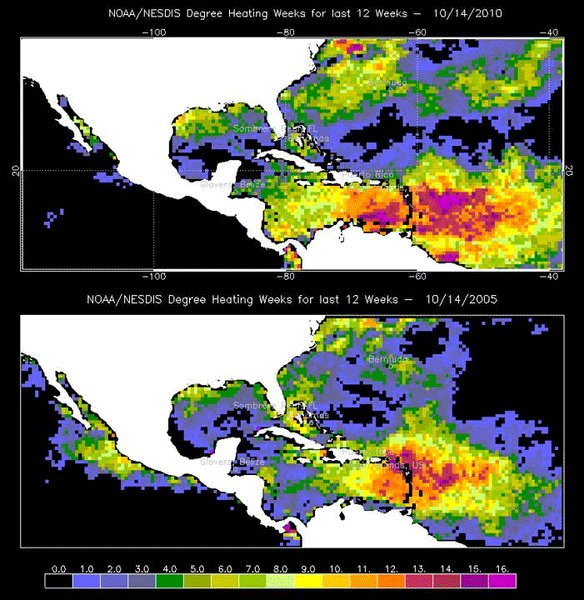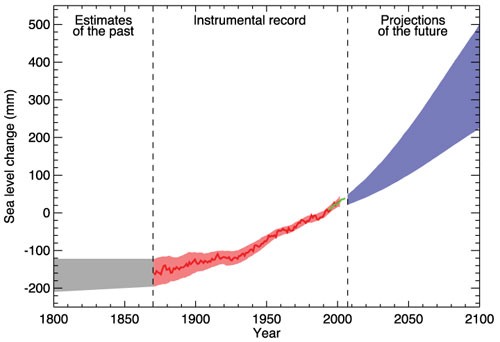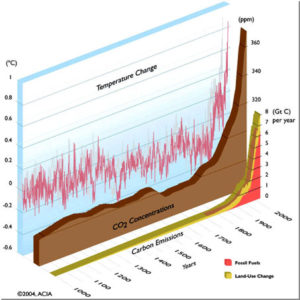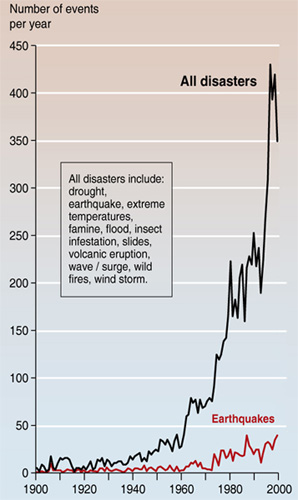why we care
Island Offsets is a non-profit NGO created to mitigate climate change by supporting projects that benefit the Cayman Islands
Why do we care about carbon offsetting?
While small island nations emit less than one percent of global greenhouse gas emissions, they are among the most vulnerable of all locations to the adverse effects of climate change and sea level rise.
As this NOAA graphic shows, 2010 is worse than 2005.
Small islands often contain a highly unique range of biological diversity with over 4,000 species of endemic plants and animals, including some of the largest and most diverse coral reefs. Because of their small size and the endemic nature of many species, the biological diversity of small island states is extremely fragile. Small changes in air or sea surface temperature could have devastating effects on these unique plants and animals.
Higher sea surface temperatures and ocean acidification will lead to more extreme and widespread incidences of coral bleaching and coral mortality. Scientists studying Caribbean reefs say that 2010 may be the worst year ever for coral mortality. Abnormally warm water since June 2010 appears to have dealt a blow to shallow and deep-sea corals that is likely to top the devastation of 2005, when 80% of corals were bleached and as many as 40% died in areas of the Eastern Caribbean.

Effects in the Cayman Islands

The Cayman Islands are likely to be seriously affected by sea level rise as they are low-lying with an average height above sea level of just seven feet and lie in an area frequently affected by hurricanes. Forecast increases in the intensity of hurricanes and tropical storms will cause higher associated storm surges, worsening the effects of sea level rise leading to increased beach erosion and damage to coral reefs. Sea level rise and higher storm surges could also lead to the widespread destruction of mangroves, thus rendering the coastline even more vulnerable to flooding.
Rising sea level will also affect the built environment of the Cayman Islands including roads, aircraft runways, and port infrastructure. Many of the islands’ homes, resort hotels and condominium developments are built on the coastline and are extremely vulnerable to adverse weather and the resulting storm surge. Oil storage facilities are located along the coast in the midst of a residential area while Grand Cayman’s only airport is on the edge of North Sound bordering the coastal flood plain.
Tourism accounts for a high proportion of the islands’ GDP and therefore any impact to the tourism industry is of vital consequence to the nation. Probably the most direct effect of rising relative sea levels on tourism will be the erosion and retreat of beaches and the consequent effect on beach properties. A sustainable approach to coastal defence is probably the most effective in the long run, with protection of the local mangroves playing a very important role in the protection and stability of the islands as they trap sediment and disrupt waves. It is for this reason that Island Offsets is working in partnership with the National Trust to purchase at-risk forests in the Cayman Islands to prevent deforestation of local ecosystems
In view of the threat posed by rising sea levels, more intense hurricanes, and increased costs of foreign oil (both financial and environmental) it is evident that strong responses are needed. Island Offsets is working to ease and speed the transition to a renewable energy future for the Cayman Islands by helping to finance expensive changes to existing infrastructure and by increasing awareness of existing alternatives.
Some frequently asked questions:
What is Carbon Offsetting?
Scientific consensus states that carbon emissions must be reduced by 80% by 2050 to avoid catastrophic climate change. We each have an important and essential role to play in meeting these targets and carbon offsetting enables us to do our part in an easy and effective way.
A carbon offset represents a reduction in emissions somewhere else – like a renewable energy or reforestation project – to balance out the emissions you cannot reduce. Carbon offsets are the only way to get your carbon footprint to zero today.
Carbon offsetting is often the fastest way to achieve the deepest reductions of greenhouse gas emissions and it also often delivers added benefits at the project site, such as community development programs and the protection of threatened ecosystems. You can rest assured that your money is bringing effective change to the climate change battle while providing local benefits to the Cayman Islands.
So, is this a 'real' emission reduction?
Yes, and no! Say, for example, your business is unable to reduce 100 tonnes of its CO2 emissions in the short term. Island Offsets has a project which could save 100 tons easily, but doesn’t have the funds to set the project in motion. Through our “Pay it Forward” programme, you provide the financial assistance to subsidise the cost of a project to cut carbon emissions and have enabled a savings of 100 tonnes of CO2. Your business has therefore reduced global net CO2 emissions by 100 tonnes and effectively erased your carbon footprint. This is a very real reduction in global carbon levels that will help alleviate the effects of climate change.
To be clear, however, a carbon offset, an emissions reduction credit, and a carbon credit are generic terms that generally represent a verified reduction in greenhouse gas emissions. Carbon offsets are commodities that are commercialised, sold, and retired within compliance and voluntary markets. Although Island Offsets’ “Pay it Forward” programme does not trade in these markets, it is nonetheless creating real carbon reduction effects that will be felt not just on a global scale, but locally in the Cayman Islands as well. This programme then goes beyond international standards by also preserving important and unique local biodiversity, contributing to energy independence and promoting science education in Cayman’s classrooms. Your involvement in this programme goes further than traditional offset projects and has tangible effects that will be felt right here at home.
What is 'climate change'?
 The earth’s atmosphere naturally traps heat from the sun, a process called the “greenhouse effect”, which makes the planet habitable for humans and other life forms. Greenhouse gases (GHGs) are the gases in the atmosphere that trap the heat. From the end of the last Ice Age to the end of the 18th century, the levels of greenhouse gases in the atmosphere remained fairly constant and at a level sufficient to sustain life as we know it today. Since the Industrial Revolution 200 years ago, human activity has been releasing unprecedented amounts of greenhouse gases into the atmosphere, which trap more heat, amplifying the natural greenhouse effect.
The earth’s atmosphere naturally traps heat from the sun, a process called the “greenhouse effect”, which makes the planet habitable for humans and other life forms. Greenhouse gases (GHGs) are the gases in the atmosphere that trap the heat. From the end of the last Ice Age to the end of the 18th century, the levels of greenhouse gases in the atmosphere remained fairly constant and at a level sufficient to sustain life as we know it today. Since the Industrial Revolution 200 years ago, human activity has been releasing unprecedented amounts of greenhouse gases into the atmosphere, which trap more heat, amplifying the natural greenhouse effect.
According to the United Nations Intergovernmental Panel on Climate Change (IPCC), which is comprised of the world’s leading scientific experts in the field of climate change, the global climate is undergoing dramatic changes as the direct result of greenhouse gas emissions from human activity. Without effective action to halt the rise and then reduce the levels of greenhouse gases released, countries worldwide and their citizens face a dire future.
Consequences are expected to include more hurricanes, tornadoes, flooding rivers, drowning of low-lying islands, increased disease, and massive global economic disruption. In many regions agriculture will be adversely affected by water shortages and extreme heat. The effects on the natural world will also be severe and may include the loss of coral reefs as oceans warm and of tropical forests as fires become more frequent. These impacts will be felt in economic terms and the pressure on already stressed world financial systems could be catastrophic. There will also be social consequences with mass human migrations from lands affected by drought and famine and extreme heat stress in urban areas.
 Climate change is already apparent as evidenced by higher temperatures, rising sea levels, increased ocean acidity and ice melt. We’ve all seen the evidence in our own lives. All of the ten warmest average annual global temperatures recorded since the end of the 19th century have occurred in the last 15 years. According to the IPCC these trends are set to accelerate into the 21st century. Today, all but a tiny handful of climate scientists (near 98%) are convinced that the earth’s climate is heating up and that human activities are to blame.
Climate change is already apparent as evidenced by higher temperatures, rising sea levels, increased ocean acidity and ice melt. We’ve all seen the evidence in our own lives. All of the ten warmest average annual global temperatures recorded since the end of the 19th century have occurred in the last 15 years. According to the IPCC these trends are set to accelerate into the 21st century. Today, all but a tiny handful of climate scientists (near 98%) are convinced that the earth’s climate is heating up and that human activities are to blame.
Fortunately, many technological solutions exist for reducing greenhouse gas emissions. While these technologies come with a price, it is far outweighed by the costs of inaction. Although financing these technologies remains a challenge, new sources of finance, such as carbon offsets, will mobilise the necessary investment and financial flows to address our response to climate change. Your commitment to making a change today in your own life can have dramatic benefits for the future.
©Island Offsets
